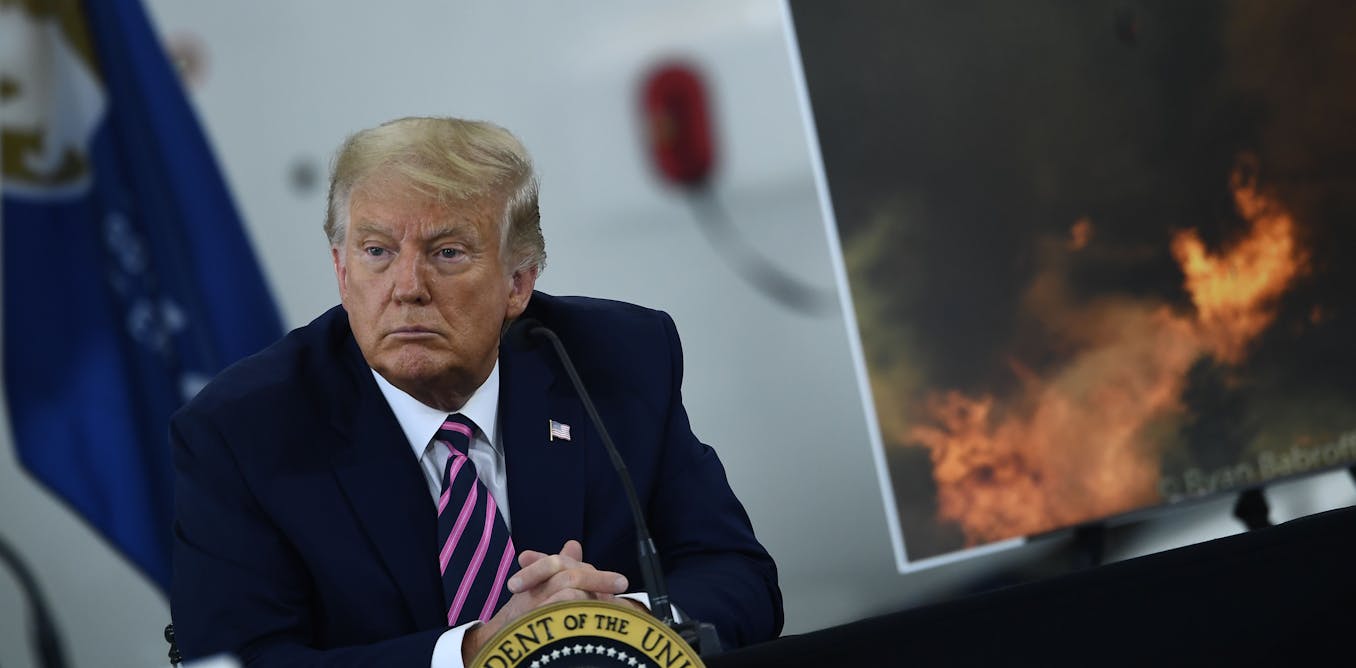This week, in East Sussex, a case of mpox was announced, the sixth UK case since October. New cases have also been detected recently in France, Germany, Belgium, Sweden, Canada and the US as mpox spreads out of Africa. Also this week, Tanzania’s president confirmed an outbreak of Marburg, an Ebola-like virus, which the country’s health minister had previously denied, only after the World Health Organization (WHO) independently reported an outbreak of nine suspected cases and eight deaths.
These two new reports of infectious diseases, thousands of miles apart, emphasise why, if a World Health Organization did not exist, it would have to be created to identify and prevent the spread of infectious diseases worldwide.
And because infectious diseases now threatening us still include new variants of Covid, it makes no sense for President Trump to announce a day-one executive order to walk away from the one organisation that addresses such health emergencies on a global basis, the World Health Organization (WHO).
While the current WHO was created in 1948 under the umbrella of the United Nations, there has been an international global health organisation in the more than 170 years since 1851, the first being set up to deal with cholera as it initially spread undetected and then unaddressed across the world.
President Trump wants to leave, arguing that the US shoulders too much of the burden of WHO expenditure, while the WHO listens to China, which, he says, pays only a small portion towards the organisation. The official executive order says that “China, with a population of 1.4 billion, has 300% of the population of the United States, yet contributes nearly 90% less to the WHO.” “World Health ripped us off,” Trump said in the Oval Office as he signed up to the one-year countdown to departure. They pay $39m, we pay $500m – you think that’s a good deal?, went his line of argument.
But he got his facts wrong. In fact, the USA pays $130m in assessed contributions and China pays $88m.
As someone who has advised the World Health Organization on finance, I know that funding is allocated on a tried-and-tested formula primarily based on the size of a country’s economy, which is similar to that used to pay for UN peacekeeping and contributions to the World Bank and the International Monetary Fund. The US represents more than a quarter of the world economy – currently 27% –, but, in fact, the USA’s assessed contribution to WHO is below that figure, limited to 22% of all global assessed contributions. And because assessed contributions represent only one quarter of the spending of the World Health Organization, most of its income comes from voluntary contributions made by member states and private charities such as the Gates Foundation. The US administration makes $368m in voluntary contributions. So, taking all assessed and voluntary contributions together, the US provides about 18% of WHO’s overall funding, hardly an excessive amount when compared with its 27% share of the world economy.
Of course, a burden-sharing formula would require China, which, according to the WHO, offered only $4m in voluntary contributions, eastern Europeans and the Gulf states to pay more, and this is what we and the USA should argue for. But the 18% contribution is not an argument for the US leaving.
The other accusation made by the earlier Trump administration when, in 2020, it first issued a notice to withdraw, a move reversed by Joe Biden, was that the WHO was overly influenced by China during the pandemic’s early stages and that China has never been honest about the source of the epidemic. “It [the WHO] is run by China,” said the president from the Oval Office this week. But the WHO’s head, Dr Tedros Adhanom Ghebreyesus, has repeatedly called on China to adequately investigate and rapidly disclose information about the origins of the Covid-19 virus that emerged in Wuhan five years ago. Indeed, Tedros has incurred Beijing’s public wrath for rightly insisting that all hypotheses around the pandemic’s causes remain on the table until China cooperates. The proposed “pandemic action accord”, now being negotiated as a member states initiative, which would tighten international health coordination, is the right response to inadequate reporting. But if the US leaves and refuses to support such an international accord, it will abandon any role in these negotiations.
In his new executive order, the president has not only directed agencies to “pause the future transfer of any United States government funds, support, or resources to the WHO”, but also to “identify credible and transparent United States and international partners to assume necessary activities previously undertaken by the WHO”. However, it is difficult to see how they can find “coordinating mechanisms within the National Security Council apparatus” that can “safeguard public health and fortify biosecurity” without a global arrangement. There is no similar organisation ready to take the place of a body that has 194 member states, with no major country on the outside, and can deal not only with infectious diseases but also health emergencies in conflict zones and climate-affected areas, while working to reduce the incidence of cancer and other diseases around the world.
The WHO is right to say that it hopes the US will reconsider, for it is too easy to forget that coordinated cross-border efforts have successfully eradicated smallpox, virtually eliminated tuberculosis and polio, reduced Aids-related deaths by almost 70% over 20 years, and, since 2010, have eliminated at least one “neglected tropical disease” in 54 countries.
With increased mass travel, rising urban populations, and human encroachment on wildlife habitats – just three of the 15 drivers of global risk cited in a recent report by the Global Preparedness Monitoring Board – a new pandemic is not a question of if but when. Without a properly funded World Health Organization, we leave ourselves unprepared.
So we have to offer a way forward. Member states in each region of the world should step up and make sure WHO is sustainably financed. Australia can lead the search for funders in Asia, Brazil in Latin America, the UK and Switzerland in Europe, and Qatar in the Middle East. Already African and Asian low-income countries have donated to the new investment case produced by the World Health Organization. There lies hope. If the poorest countries can be persuaded to contribute, the world’s richest countries can be persuaded to do so too.
-
Gordon Brown was UK prime minister from 2007 to 2010

 German (DE)
German (DE)  English (US)
English (US)  Spanish (ES)
Spanish (ES)  French (FR)
French (FR)  Hindi (IN)
Hindi (IN)  Italian (IT)
Italian (IT)  Russian (RU)
Russian (RU)  3 hours ago
3 hours ago
























Comments